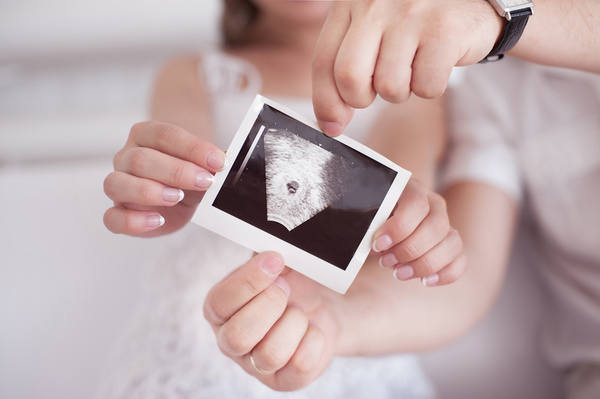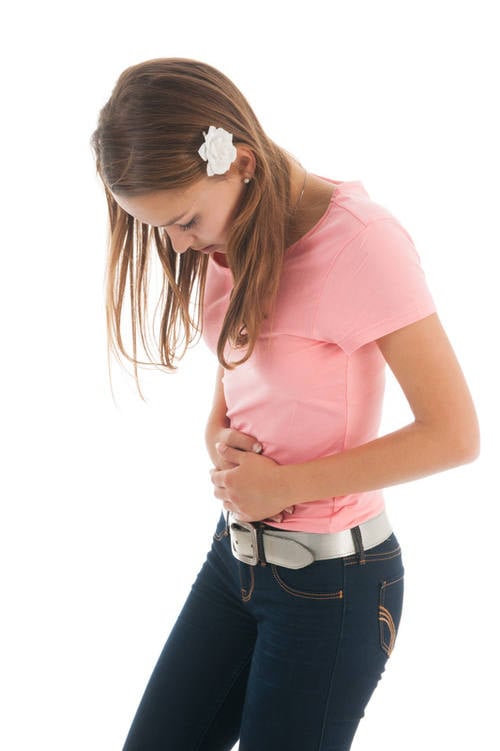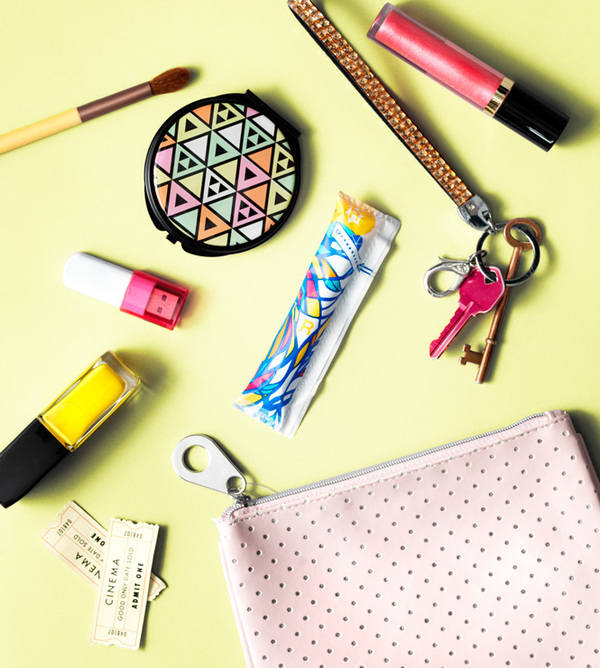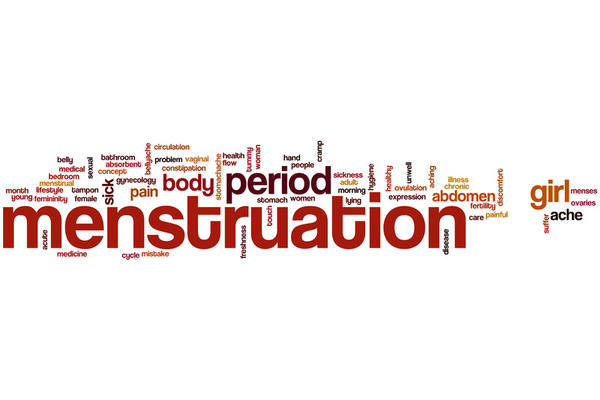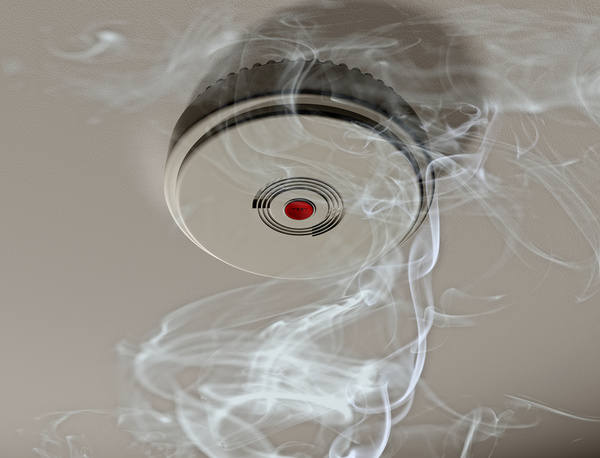Pregnancy Exercise : Deep Freeze Pain Relief review
Posted on
I was determined to remain active whilst I was pregnant, although SPD slowed me down considerably in my second pregnancy but our baby blogger is now struggling with similar symptoms during her third trimester so when Britmums said that they were working with Deep Freeze Pain Relief, we knew we wanted to be involved.

A recent study from Deep Freeze revealed that 26 per cent of pregnant women exercise twice a week, with a further 16 per cent exercising once a week. However, of the 36 per cent of those who choose not to exercise, 20 per cent choose not to due to back pain. This is a really interesting statistic and one that both myself and Lynette, our baby blogger can relate to. Here is her story ...
I have always been keen to keep myself fit and active from an early age, Having attended many clubs for exercise over the years, and taking part in different activities. When I was pregnant with our first child, I took things very easy due to a complicated start to the pregnancy. Although I tried to keep myself active, to be honest I didn't want to do anything that may cause a problem. As a result I put on a lot of weight.
After a 4 year gap, and getting back into a good exercise regime I am now 38 weeks pregnant with our second child. Apart from morning sickness in the first 15 weeks, I managed to keep myself very active and busy. However, as the middle of the second trimester approached, I started to suffer with pain in my middle back. I found sleeping exceptionally difficult, and sitting for long periods of time was almost impossible. As the third trimester approached, the pain had moved to my lower back and into my pelvis.
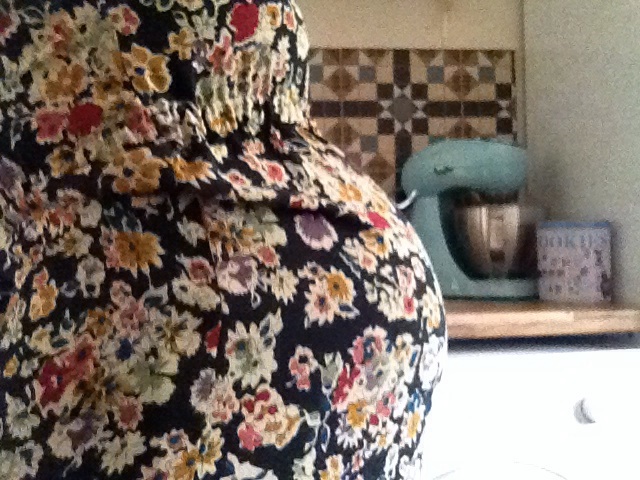
As you can see, I have a beautiful baby bump but exercise was now practically impossible and even getting in/out of bed was painful. I was extremely disappointed that I was not able to do a lot without having to rest. Exercise was a no go. Walking was a struggle, so how would I be able to go to Yoga or walking in our village, so you can imagine that I was thrilled to test the Deep Freeze Cold Patches.
The box contains a foil pouch which is resealable with grip seal. The pouch contains 4 patches and although they have quite a medicated smell you don't notice this once the product is applied and under clothing (although they do stay on better if you wrap something around it like a bandage). The patches are a good size and I found them easy to use, although given my discomfort it is a shame that they don't last more than a few hours as I would really like a full night's sleep before the baby arrives.
With back pain affecting three out of four mums to be and the barrier of taking oral painkillers when pregnant being an issue, most mums to be just stop keeping active during pregnancy despite the health benefits. Thankfully, the Deep Freeze Pain Relief Cold Patch offers initial, effective drug-free pain relief from muscular back pain during pregnancy*, just like an ice pack, and provides long-lasting cold analgesia to the site of pain. The adhesive patch is applied simply and easily, and can be worn without restricting movement or needing to be replaced frequently to maintain the cooling effect. Deep Freeze Pain Relief Cold Patches are great news for muscular back pain during pregnancy.
As a final (and slightly humorous note) the patches have also been found to help our baby bloggers husbands back after he fell through the ceiling during their extension work on the house (I kid you not - here is the picture to prove it) and he is now a huge fan of the pain relieving properties of the Deep Freeze Pain Relief Cold Patch.
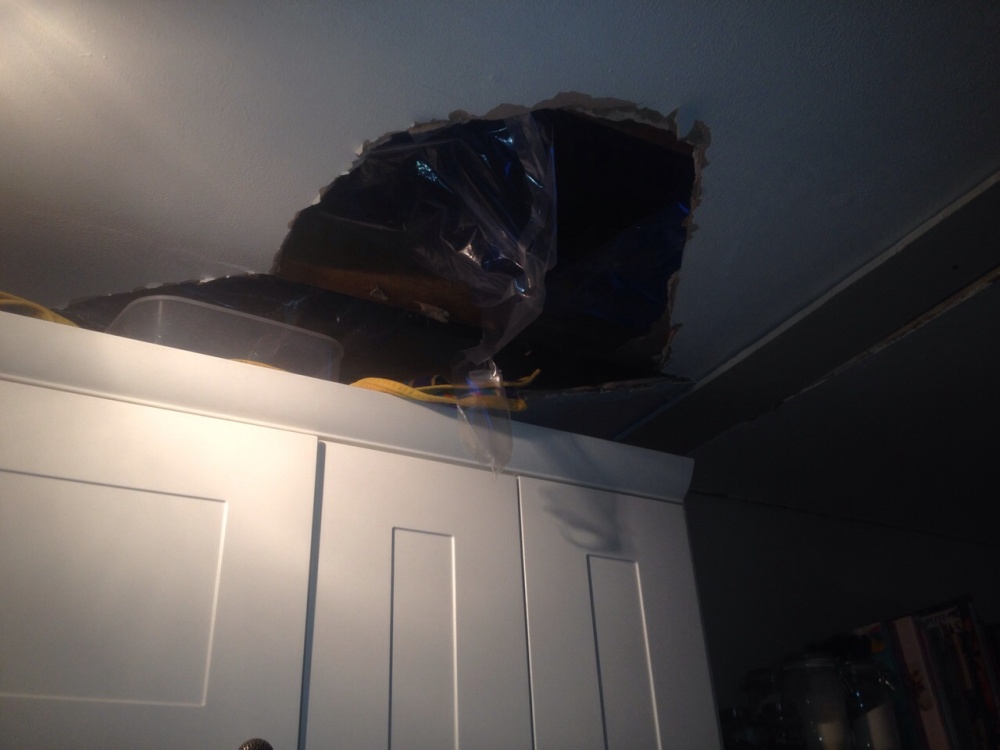
I'm working with BritMums and Deep Freeze Pain Relief Cold Patch, writing about pregnancy and muscular back pain. I was provided Deep Freeze Pain Relief Cold Patch and have been compensated for my time. All editorial and opinions are my own. Visit Deep Freeze for more information.






